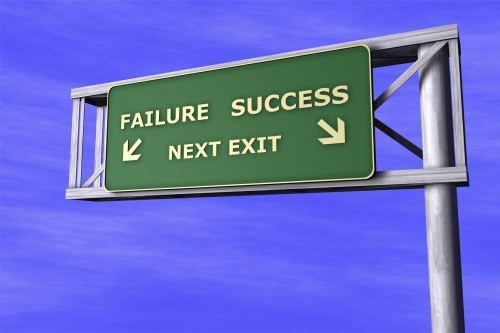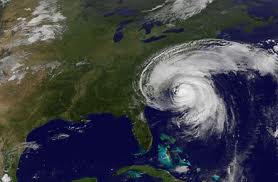Stuff Happens…
We’ve all been there. The cancelled flight. The lengthy power outage. The inconvenient disruption in internet communications. Higher than normal dropped cell calls. You’d think that whoever is calling the shots on the weather patterns lately would know the magnitude of chaos they are creating in our lives. It’s enough to drive you nuts!
God grant me the serenity to accept the things I cannot change…
Hurricane Irene, though relatively tame to a gulf coast native like myself, once again forced me to reflect on how storms like this can disrupt life’s little conveniences. On the one hand, it’s quite amazing how stressed and freaked out we (including yours truly) get with what are, in the end, minor inconveniences–many of which would be regarded as luxuries elsewhere on the planet.

Let’s face it, we’re all human, and while we get as frustrated as the next person when inconvenienced, we all are capable of realizing and accepting that certain events simply fall into the category of “S**T HAPPENS”. While nobody likes to wait on hold for two hours to talk to an airline, most of us “bite our tongue” when talking to the agent because we know they are probably as stressed, if not more so, than we are because of what they’ve had to endure during the time we were on hold.
…and the wisdom to identify idiocy!
On the other hand, it is equally amazing, given the advances in service capabilities and technology, that we are unable to avoid, or at least help customers to tolerate, the downstream impact of these events. Consider the following examples from last weekend’s flight mess caused by multiple airport closures in the Northeast.
- Text message informing a passenger of a canceled flight fifteen minutes after the last alternate departure
- Text message instructing the passenger to CALL the airline for additional information, exponentially amplifying an already uncontrollable workload/call volume
- Call-in number with an automatic message that says essentially, “we have too many incoming calls, call back later.” Really? A six-billion-dollar Fortune 100 company in 2011 with a message like THIS?
- Call queues (for airlines who, under normal circumstances, pride themselves on differentiating between “tiers” of frequent fliers”) that suddenly lose all such distinctions in the midst of a crisis–with hold times from two to three hours throughout the weekend
- A website containing little if any useful information on the situation at hand, self-help suggestions for what I could do in the meantime, or anything else that might have alleviated the stress
- Complete absence of any visible “behind the scenes” or back office process to re-book flights automatically (my reservation was essentially cancelled leaving me to re-book myself with no apparent prioritization for my loyalty status
- A workforce that, despite all their effort and hard work, (and I do mean hard work because they had 200 reps working what I estimate to be at least 300,000-500,000 displaced passengers), did what???
 Crises are the real MOTs…
Crises are the real MOTs…
There has been a lot of talk in recent years about “Moments of Truth” (“MOTs”) when it comes to service interactions. We often think about MOTs from a transaction standpoint, e.g.,when a customer calls to connect service, ask a billing question, get updated about a service interruption, or simply to complain about an inconvenience. For me, though, the real MOT is what happens in a true moment of chaos or crisis–when the customer’s daily life is truly interrupted, i.e., when they actually expect things to suck. It’s at that moment, when natural optimists become pessimists, that one of three things happens:
- Customers’ bad expectations are realized, either creating or reinforcing a perception that when unforeseen events occur, things will inevitably become hopeless, i.e., a feeling of general resignation.
- Lowered expectations become their worst fears…and you become recognized as the company that falls apart rather than shining in the face of adversity.
- They are completely “WOWED” by the significant, yet counter-intuitive, responses they see from you at a moment when they have every expectation in the book for not doing so.
For most of us, it’s typically the first experience, and we move on with our lives, disappointed but not surprised. We remain only marginally engaged, and perhaps, when the next opportunity presents itself to switch to another supplier, that new supplier may have the proverbial “edge”. But for companies who really understand these dynamics and strive for true loyalty, they know the power of the third outcome above, and the value that small, but memorable, responses can have in these real MOTs.
What if…
…I had received a text message telling me that an adverse weather situation was unfolding and that by responding “helpme” to their text, they would search for available options and contact me to see if I wanted to initiate any of these two or three alternative plans? What if the message I heard when I called (instead of “We’re busy. Call back later.”) had directed me to a website that contained actual useful information (even if nothing more than “We’re at the mercy of the weather and the airport, and we won’t know anything until tomorrow at 2 p.m.”)? What if instead of my reservation being cancelled, they had proactively re-booked me on another flight? And what if (perhaps for only their million-mile customers) they had actually offered me some REAL solutions, like, for example, flying on a different airline or going through an unconventional (perhaps even inconvenient and uneconomic) routing.
Insanity=
Doing the same thing over and over again, and expecting a different result…
We all understand crises and uncontrollable events. We all know that we cannot blame an airline or a power company for things like earthquakes, weather, some mechanical failures, and the like. And we know, as well, how inappropriate it is to blame the people who are doing their best in a bad situation. But I would argue that in a time and era where margins are thin and everyone is looking for new ways to differentiate themselves…and particularly in a time when customers have been conditioned to expect the WORST from us…that is the perfect time to step up and offer creative and inspiring solutions.
Some of these may be BIG things–the kind of heroics you hear about in commercials, performances that border on the uneconomic and, perhaps, unrealistic–solutions that would drive a company to the poorhouse if they were truly institutionalized (Can anyone forget the FEDEX driver who couldn’t get the drop box open, so he lifted the entire multi-hundred-pound box into the back of his truck?). But I would contend that it’s the little things that mean the most–the things that show you’ve had the FORESIGHT to understand how a customer is truly affected in a crisis. ANTICIPATE your customers’ most likely state of mind in these situations, and develop small solutions that can, in fact, be INSTITUTIONALIZED.
-b
Author: Bob Champagne is Managing Partner of onVector Consulting Group, a privately held international management consulting organization specializing in the design and deployment of Performance Management tools, systems, and solutions. Bob has over 25 years of Performance Management experience and has consulted with hundreds of companies across numerous industries and geographies. Bob can be contacted at bob.champagne@onvectorconsulting.com




Great post Bob. I like the examples that you’ve given for ways to anticipate the need. Good food for planning fodder!